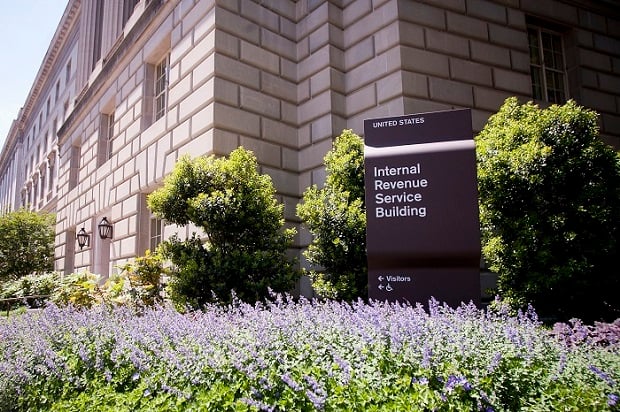 The Budget Act of 2018 allowsplan sponsors to eliminate the mandatory six-month suspension ofelective deferrals as well as the requirement to take a loan priorto seeking a hardship withdrawal. (Photo: Diego M.Radzinschi/ALM)
The Budget Act of 2018 allowsplan sponsors to eliminate the mandatory six-month suspension ofelective deferrals as well as the requirement to take a loan priorto seeking a hardship withdrawal. (Photo: Diego M.Radzinschi/ALM)
We can't predict the future, but sometimes the immediate pastleaves enough breadcrumbs to show us a reasonably correct path.
|Such was the case with the Budget Act of 2018 and the IRS Letter Ruling201833012. These addressed the type and nature of hardship withdrawal rules corporate retirementplans can adopt. Plan sponsors need to be aware of the potentialbenefits and harm the opportunity to change theplan's rules may present to employees.
| Christopher Carosa, CTFA, ischief contributing editor for FiduciaryNews.com, a leading providerof essential news and information, blunt commentary and practicalexamples for ERISA/401(k) fiduciaries, individual trustees andprofessional fiduciaries.
Christopher Carosa, CTFA, ischief contributing editor for FiduciaryNews.com, a leading providerof essential news and information, blunt commentary and practicalexamples for ERISA/401(k) fiduciaries, individual trustees andprofessional fiduciaries.
The Budget Act of 2018 allows plan sponsors to eliminate themandatory six-month suspension of elective deferrals as well as therequirement to take a loan prior to seeking a hardship withdrawal.In addition, it increases available funds subject to hardshipwithdrawals. Together, these changes will allow employees easieraccess to more of their retirement savings well in advance ofretirement.
|Related: DC plan drawbacks that endanger workerretirements
|A fiduciary must ask whether this is in the best interest of theemployee. This doesn't present itself as a black and whiteargument. We certainly don't want employees who are sitting onlarge retirement assets to starve today because they don't haveaccess to their money. On the flip side, we know most people aren'tsaving enough for retirement and that encouraging them to take a“hardship” withdrawal will likely come back to haunt them inretirement.
|Amending plan rules to reflect these changes must be done by theend of the plan year they first become effective.
|The private letter ruling issued by the IRS addresses anotherproblem we're seeing all too often in the headlines: runawaystudent loan debt. The letter allows companies to apply 401(k)matching contributions to employees who have made student loanpayments. This, in effect, removes one of the most cited reasonswhy younger employees don't contribute to their company'sretirement plan. It's not a direct “hardship” withdrawal, but anindirect one in the sense that it may divert funds that wouldotherwise go towards retirement saving.
|While this may sound good, be forewarned: An IRS private letterruling has limited applicability. It does not reflect official IRSguidance. This may put the damper on many 401(k) plans offering thesame benefit. On the other hand, if there's growing demand amongemployees for a student loan benefit program, expect the IRS to beinundated with similar private ruling requests. Who knows? Thisjust might inspire the IRS to issue general guidance on thematter.
|Again, the fiduciary needs to consider the upside and downsideof such a policy. Arguments in favor of a student loan benefitprogram include both the ability to reduce student debt and at thesame time make at least some nominal savings for retirement.Arguments against a student loan benefit program include thataforementioned diversion of funds away from saving for retirement.Most, however, consider this a Solomon-like compromise, with themoney being split in half between paying off student loans andsaving for retirement.
|Beginning January 1, 2019, cognizant plan sponsors will havebroader opportunities to make their 401(k) plans more attractive,albeit potentially less effective.
|Read more:
Complete your profile to continue reading and get FREE access to BenefitsPRO, part of your ALM digital membership.
Your access to unlimited BenefitsPRO content isn’t changing.
Once you are an ALM digital member, you’ll receive:
- Critical BenefitsPRO information including cutting edge post-reform success strategies, access to educational webcasts and videos, resources from industry leaders, and informative Newsletters.
- Exclusive discounts on ALM, BenefitsPRO magazine and BenefitsPRO.com events
- Access to other award-winning ALM websites including ThinkAdvisor.com and Law.com
Already have an account? Sign In
© 2024 ALM Global, LLC, All Rights Reserved. Request academic re-use from www.copyright.com. All other uses, submit a request to [email protected]. For more information visit Asset & Logo Licensing.








